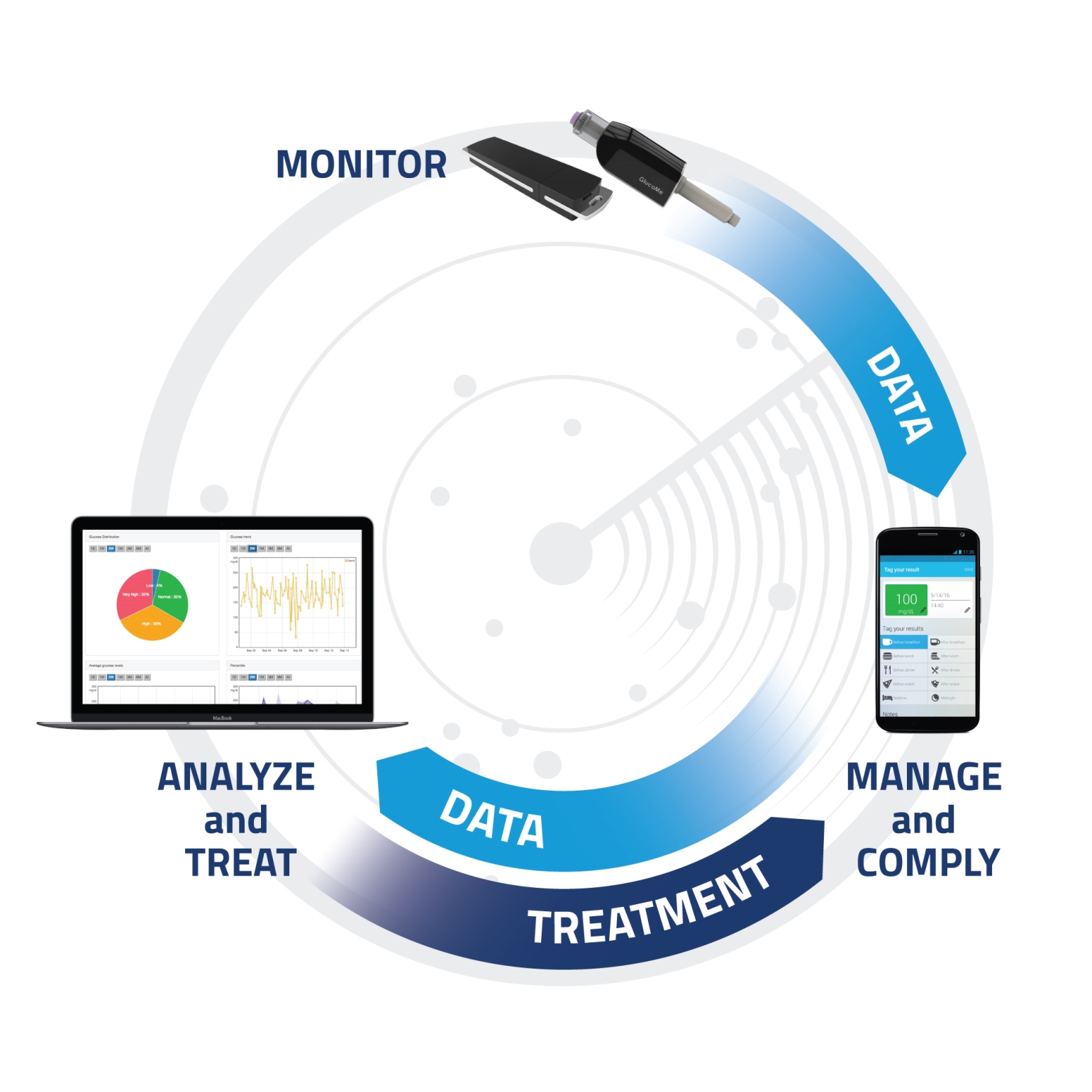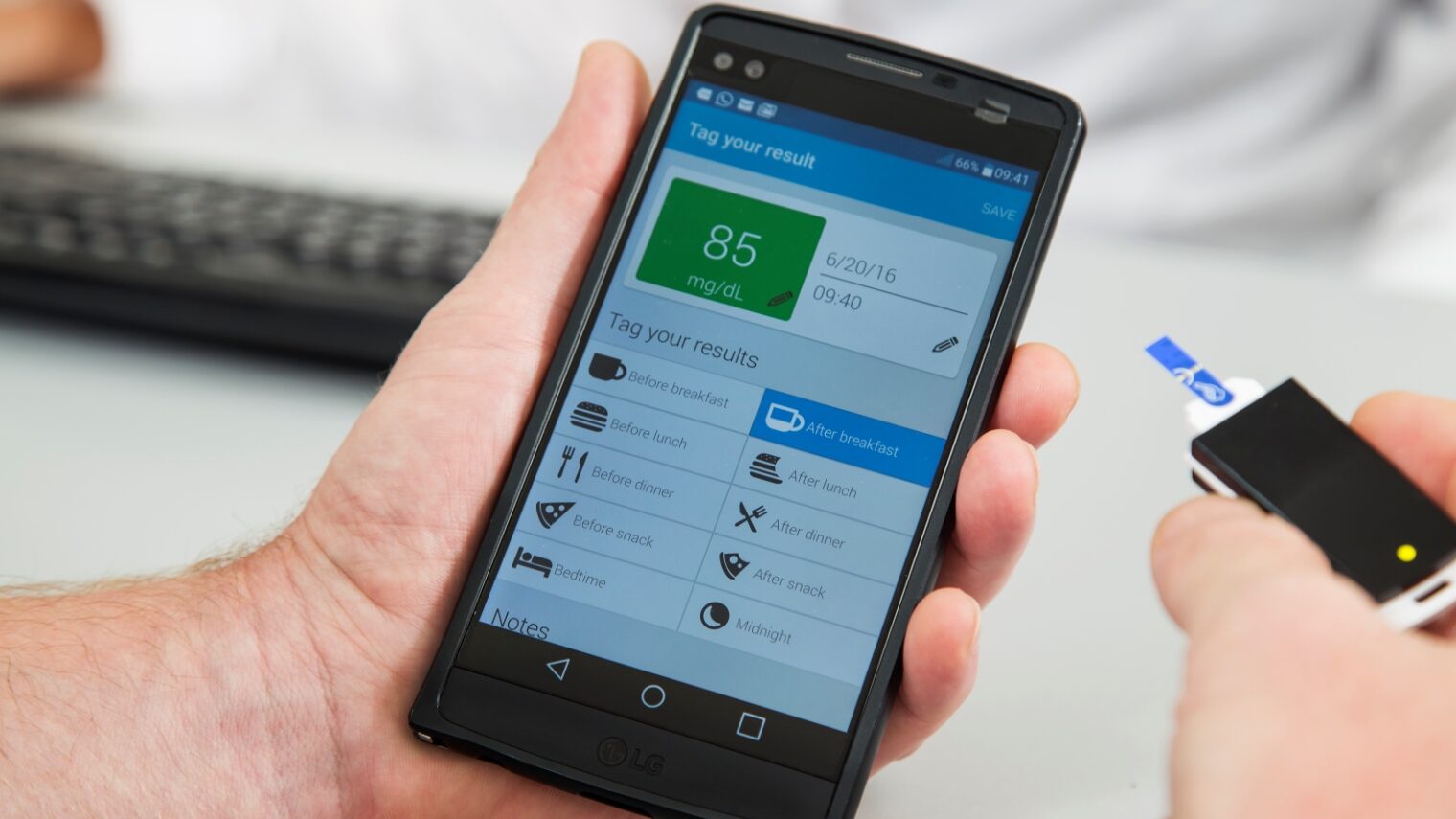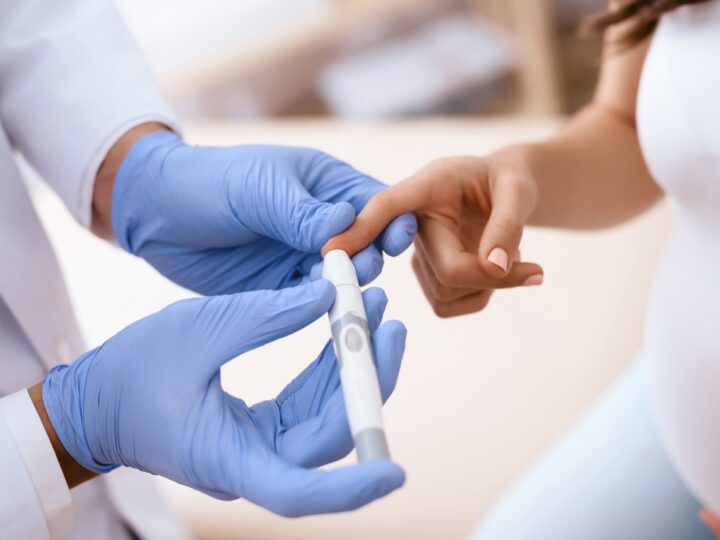India has been described as the diabetes capital of the world. More than 69 million Indians are currently living with diabetes and the number is expected to climb to 79.4 million by 2030.
To help manage the treatment of this staggering number of patients, Apollo Hospitals Group’s nationwide chain of Apollo Sugar diabetes clinics in India is integrating Israeli digital diabetes platform GlucoMe into its home-care program.
“For the first time in India, the diabetes clinic is walking into someone’s house,” said Dr. Prathap C. Reddy, chairman of Apollo Hospitals Group.
Hundreds of thousands of Apollo Sugar patients will receive an Apollo Diabetes Home-Care Kit that includes GlucoMe’s insulin pen monitor and patented wireless blood-glucose monitor, which automatically records blood-glucose measurements and insulin intakes.
Real-time data is provided to the patient and the medical professional and there’s continuous communication between clinic and patients via a mobile app compatible with iOS and Android devices.
GlucoMe CEO Yiftah Ben-Aharon explains that the overall goal is to optimize treatment plans, increase patient compliance and improve the patient’s quality of life.
Data collected by the monitor is seamlessly transferred to the patient’s smartphone, stored in a personal profile by the mobile app, and analyzed by GlucoMe’s cloud-based Digital Diabetes Clinic, which sends out personalized reports and real-time alerts.
The solution also recommends proactive treatment approaches to be considered by the attending medical professional.
“Our cloud-based service allows the healthcare provider to accept or modify our recommendations before sending them to the patient. They are the gatekeepers,” says Ben-Aharon. “This is one of the unique aspects of our system.”
The GlucoMe platform earned the European Union’s CE mark in 2016; US FDA clearance is anticipated later this year. The Digital Diabetes Clinic was introduced and demonstrated at the HIMSS18 health information and technology conference, March 5-9 in Las Vegas.
Caregivers can follow up to 10x more patients
Ben-Aharon points out that the diabetes pandemic affects not only Indians but about 8 to 10 percent of the overall population across the globe. However, the number of healthcare providers has not increased nearly enough to provide adequate attention to each case.
The GlucoMe system enables medical caregivers to follow up to 10 times more patients than usual, even those unable to get to the clinic.
“Our Digital Diabetes Clinic’s hardware and software tools automate the entire process of managing the diabetes patient. We collect all the relevant data, including the patient’s electronic medical records, and our mobile app gives patients a dashboard of data and medical history,” Ben-Aharon tells ISRAEL21c.
Another unique aspect of the GlucoMe system, he says, is a “control tower” feature that allows the client HMO or clinic to monitor its entire population as a whole, enabling caregivers to see quickly who needs intervention.
Additionally, GlucoMe’s blood-glucose monitor uses audio waves to send data from the device to any kind of smartphone through its built-in microphone rather than Wi-Fi or Bluetooth. “This allows us to have a connected device at the price of a non-connected device,” says Ben-Aharon.
‘We didn’t plan on opening a company’
Ben-Aharon started GlucoMe in 2013 with the legendary serial entrepreneur Dov Moran, the Israeli responsible for DiskOnKey. They had met in one of Moran’s less successful ventures, Modu Mobile, and discovered a shared interest in helping close family members deal with diabetes.

Ben-Aharon is a veteran of the IDF’s elite 8200 cyber intelligence unit and has a background in computer science.
“We didn’t plan on opening a company; we just wanted to create a solution that people in our families can use,” Ben-Aharon tells ISRAEL21c. “We started using it and we liked it and decided to show it to people and get feedback. The feedback was that we should open a company.”
Headquartered in Yarkona in central Israel, GlucoMe expects to partner with additional care providers in several countries in the near future.
Currently, several clinical trials of the GlucoMe platform are ongoing worldwide.
“We’re running tests in Seattle to submit data to the FDA, and another trial will start in Baltimore for that purpose,” says Ben-Aharon. “We also have trials in Germany and Israel. With some partners in Europe and other continents, we’re starting commercial activity at various facilities.”
The 15-employee privately held company develops all the IP and software in Israel, while the GlucoMe kit components are manufactured in Korea.
For more information, click here

















